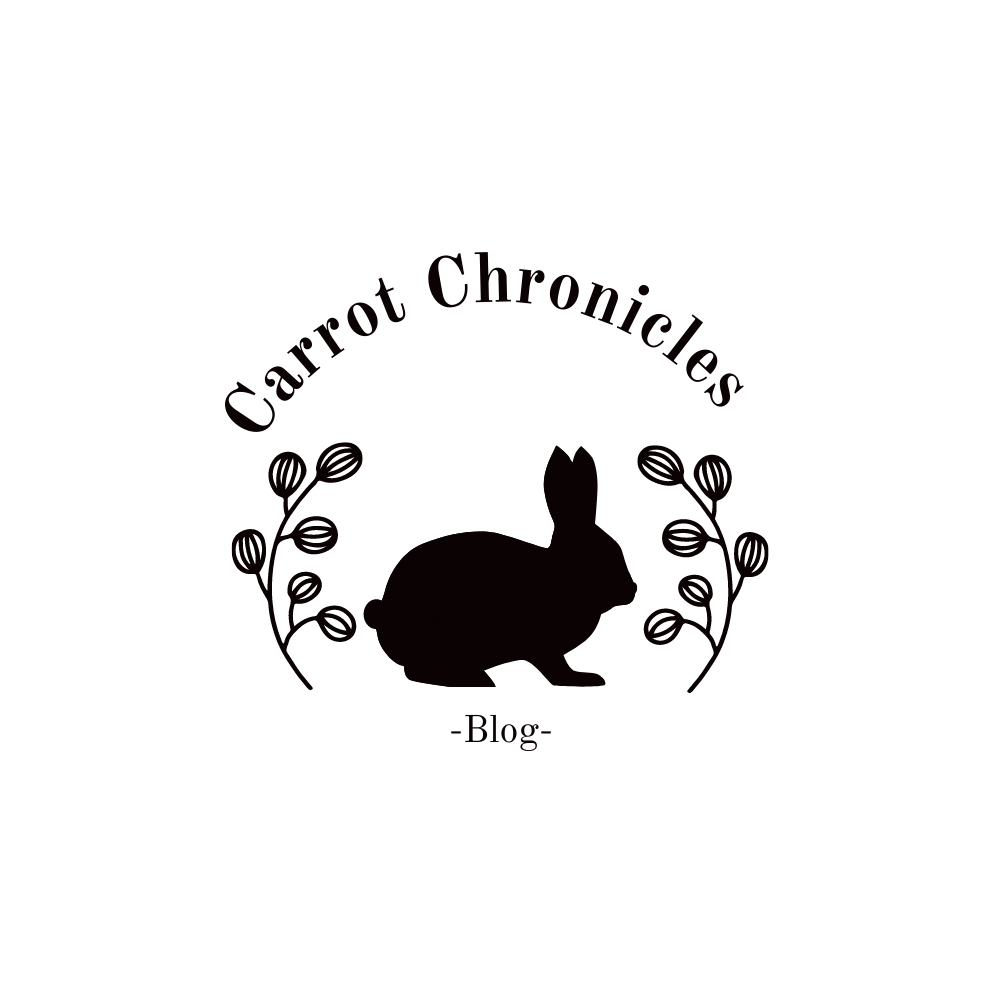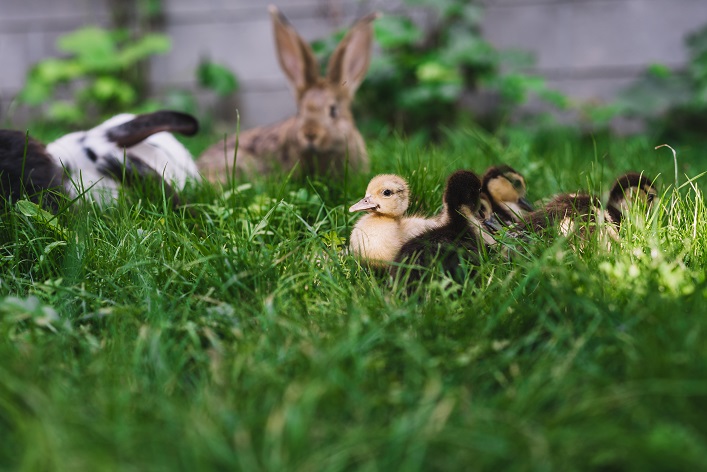can rabbits and ducks live together , two adorable creatures with distinct characteristics, have captivated pet enthusiasts worldwide. Keeping them together in harmony sparks curiosity and raises questions about the feasibility of such cohabitation. This article will delve into the dynamics of having rabbits and ducks share the same living space, exploring the intricacies, benefits, and challenges associated with this unconventional pairing.
Why Consider Keeping Rabbits and Ducks Together?
Owning can rabbits and ducks live together simultaneously might seem unconventional, but witnessing these furry and feathery friends coexist can be intriguing. Before embarking on this journey, it’s essential to understand the behaviors of both species and how they might interact with each other.
Understanding Rabbit and Duck Behaviors
Decoding the Traits: Rabbits
Rabbits are known for their playful and social nature. They thrive on routine and enjoy having a secure, comfortable space. Understanding these traits is crucial for creating an environment where they can express their natural behaviors.
Decoding the Traits: Ducks
can rabbits and ducks live together On the other hand, ducks are social creatures that thrive in a group setting. They are highly adaptable and can form strong bonds with their human caregivers. Recognizing their social needs is vital for ensuring a favorable living arrangement.
Compatibility Assessment
Before bringing rabbits and ducks together, assessing their compatibility is crucial. While both species have distinct behaviors, some individuals may adapt well to each other’s presence. Careful observation and gradual introductions are critical to a successful cohabitation.
Setting Up a Shared Living Space
Creating a Suitable Environment
Providing a well-designed living space is essential for the comfort of both can rabbits and ducks live together. This includes appropriate shelters, ample space for movement, and secure fencing to prevent unwanted escapes.
Shelters for Both Rabbits and Ducks
Each species has its unique shelter requirements. While rabbits prefer cozy hideouts, ducks need shelters with easy access to water. Balancing these needs ensures that both animals feel secure in their shared environment.
Dietary Considerations
Balancing Rabbit Dietary Needs
Rabbits have specific dietary requirements, including a high-fiber diet. Ensuring they receive the proper nutrients is essential for their health and well-being.
Catering to Duck Dietary Needs
On the other hand, ducks require a diet rich in grains and access to clean water for swimming. Meeting their nutritional needs contributes to their feather health and vitality.
Ensuring a Balanced Diet for Both
Creating a feeding routine that accommodates the dietary needs of both can rabbits and ducks live together is crucial. This promotes their health and minimizes potential conflicts arising from food-related issues.
Health and Hygiene
Common Health Concerns for Rabbits and Ducks
Being aware of the common health issues for each species is imperative. Regular veterinary check-ups and vaccinations are essential to prevent and address potential health issues.
Hygiene Practices to Prevent Diseases
Maintaining a clean living environment is vital for the health of both rabbits and ducks. Regular cleaning of their living spaces and providing fresh bedding helps prevent the spread of diseases.
Social Interaction and Bonding
Encouraging Positive Interactions
Creating opportunities for positive interactions between rabbits and ducks fosters a harmonious relationship. Engaging in activities stimulating both species, such as supervised playtime, strengthens their bond.
Recognizing Signs of Stress or Aggression
Understanding the body language and vocalizations of rabbits and ducks is crucial. Identifying signs of stress or aggression allows prompt intervention and prevents potential conflicts.
Monitoring and Supervision
Regular Check-ups and Observations
Regularly monitoring the behavior and health of both animals is essential. This includes observing their eating habits, activity levels, and overall demeanor.
Intervening in Case of Conflicts
If conflicts arise, it’s crucial to address them promptly. Having a temporary plan for separating the animals can prevent escalating tensions and ensure their well-being.
Benefits of Keeping Rabbits and Ducks Together
Mutual Companionship
One of the primary benefits of having rabbits and ducks cohabitate is the companionship they provide to each other. These animals’ contrasting personalities and behaviors create a unique and heartwarming dynamic.
Environmental Benefits
can rabbits and ducks live together The combined presence of rabbits and ducks can positively affect the environment. Their symbiotic relationship contributes to a healthier outdoor space, from natural fertilization to pest control.
Educational Opportunities for Children
Keeping rabbits and ducks together offers valuable educational opportunities for families with children. Children learn about responsibility, empathy, and the diverse needs of different species, fostering a sense of compassion.
Challenges and Considerations
Potential Territorial Issues
Despite the potential for harmony, territorial disputes may arise. Recognizing and promptly addressing these conflicts is crucial to maintaining a peaceful living arrangement.
Varied Environmental Needs
Rabbits and ducks have different environmental requirements. Finding a balance that meets the needs of both species is essential for their overall well-being.
Separation Strategies if Needed
In some cases, despite efforts to create a harmonious environment, it may be necessary to provide separate living spaces for rabbits and ducks. Having contingency plans in place ensures the safety and happiness of both animals.
Success Stories
Real-Life Instances of Harmony
Numerous pet owners have successfully kept rabbits and ducks together. These heartwarming stories showcase the adaptability of these animals and the joy they bring to households.
Lessons Learned from Experiences
Examining these real-life experiences offers valuable insights. From overcoming challenges to celebrating camaraderie moments, these stories inspire those considering a similar arrangement.
Tips for Smooth Coexistence
Creating Separate Spaces Within Shared Areas
Designing the living space to include distinct areas for rabbits and ducks allows each species to retreat to their comfort zones when needed. This promotes a sense of security and reduces potential conflicts.
Providing Mental Stimulation for Both Species
Enriching the environment with toys, puzzles, and activities tailored to the preferences of both rabbits and ducks keeps them mentally stimulated and content.
Common Misconceptions
Debunking Myths About Coexistence
Several misconceptions surround the idea of keeping rabbits and ducks together. Addressing these myths helps prospective pet owners make informed decisions based on accurate information.
Clarifying Misconceptions About Compatibility
Understanding rabbits and ducks’ specific needs and behaviors dispels misconceptions about their compatibility. With proper care and attention, these animals can thrive together.
Conclusion
In conclusion, the possibility of can rabbits and ducks live together living together harmoniously is a testament to the adaptability and resilience of these animals. Responsible ownership, a keen understanding of their behaviors, and proactive measures ensure a positive cohabitation experience.
Frequently Asked Questions
Can rabbits and ducks share the same food?
While rabbits and ducks have different dietary needs, some overlap exists. It’s crucial to provide a balanced diet that meets the specific nutritional requirements of each species.
How do you introduce rabbits and ducks to each other?
Gradual introductions in a neutral space, with close supervision, are critical. Monitoring their initial interactions helps gauge compatibility and prevents potential conflicts.
What signs indicate that the animals are not getting along?
Aggressive behaviors, constant chasing, or signs of stress such as excessive hiding or vocalizations may indicate that the animals are not getting along.
Are there specific breeds that are more compatible?
Compatibility is more about individual temperament than specific breeds. Observing the personalities of each animal is essential for successful cohabitation.
How can children actively participate in caring for both pets?
Children can help feed, clean, and provide enrichment activities for rabbits and ducks. Supervised interaction allows them to learn about responsible pet ownership.


